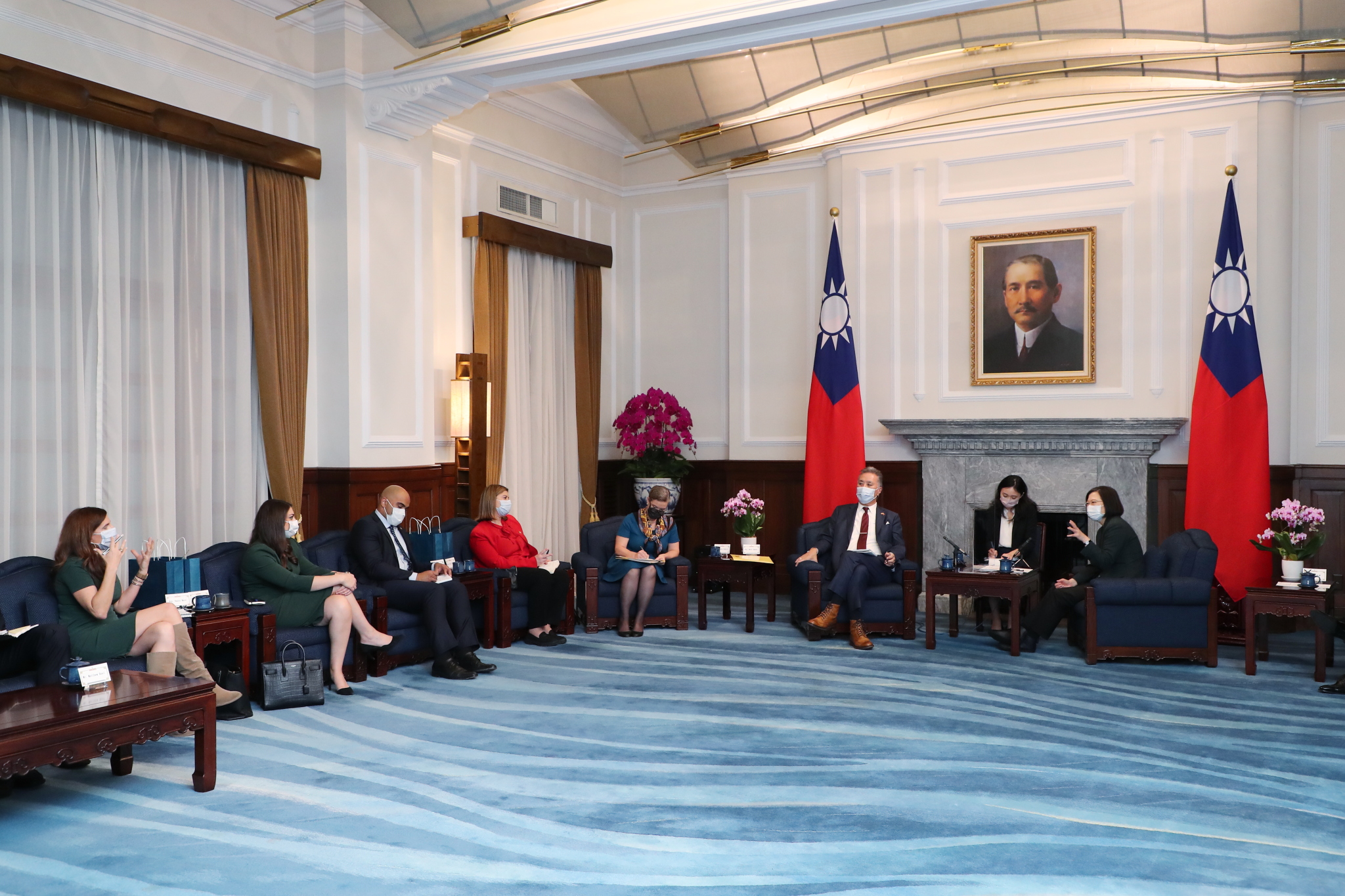Rep. Colin Allred (D-Dallas) spent Thanksgiving week in Asia as part of a bipartisan delegation, traveling to Japan and South Korea before making a surprise visit to Taiwan. This comes amid heightened security concerns in the region in the face of a rising China.
The delegation was led by Rep. Mark Takano (D-CA), who chairs the Committee on Veteran Affairs where Allred is also a member. Other lawmakers in the delegation include Reps. Elissa Slotkin (D-MI), Sara Jacobs (D-CA), and Nancy Mace (R-SC).
Allred and his colleagues met with foreign dignitaries and U.S. military personnel in Japan and South Korea as part of a fact-finding mission, spending Thanksgiving Day having lunch and dinner with servicemembers and veterans. However, the most noteworthy part of the trip was a surprise visit to Taiwan, where the lawmakers met with President Tsai Ing-wen.
“It was an honor to meet with President Tsai Ing-wen and to join my colleagues from both sides of the aisle in reaffirming our commitment to Taiwan and its self-determination,” said Allred in a statement. “In the global struggle of autocracies and increasingly aggressive behavior towards their democratic neighbors, the United States must stand firm and gather the world in defense of a rules-based international order where human rights, the right to self-determination and freedom of expression and commerce are protected.”
To understand the significance of the visit, one must understand the geopolitical oddity that is Taiwan. While Taiwan has been an independent nation in all but name ever since the Kuomintang fled to the island in 1949, China still considers Taiwan to be part of its territory and has made reunification a national priority. Given the politically sensitive situation, the United States does not have official diplomatic relations with Taiwan. However, the United States and Taiwan have unofficial relations that include billions of dollars in arms sales and de facto embassies. That relationship has gotten closer as both Washington and Taipei grow increasingly worried about Beijing’s rising power and assertiveness.
This year has seen Chinese military aircraft make record-setting incursions in Taiwan’s air defense zone. As the People’s Liberation Army (PLA) grows more capable, fears abound that China will attempt to subjugate Taiwan by force in the near future and the United States’ willingness (and ability) to defend the island has come under scrutiny. The United States has been deliberately vague about whether or not it will come to Taiwan’s defense, a policy known as “strategic ambiguity”. However, this policy has come under debate in recent years, with some experts saying a clear American security commitment to Taiwan is needed to deter a war while others argue that strategic ambiguity remains the best way to prevent either side from acting rashly.
The bipartisan delegation, which is the third time this year and the second time this month U.S. lawmakers have visited the island, is just the latest sign that the United States is moving toward less ambiguity when it comes to Taiwan. Last month, President Biden was asked at a town hall if the United States would come to Taiwan’s defense in the event of a Chinese attack and replied “yes, we have a commitment to do that,” although the White House was quick to backtrack on his statement. Meanwhile, American special operations forces have been quietly stationed in Taiwan for at least a year and the Biden administration has deployed additional troops in recent months. The Biden administration also announced last week that Taiwan would be invited to its Summit for Democracy, a move that infuriated Beijing.
Taiwan has long been a point of contention between the United States and China but the intensifying competition between the world’s two most powerful countries has made it far more significant and dangerous. Many have referred to it as the West Berlin of the new US-China Cold War. This analogy somewhat understates the issue; while West Berlin was largely a symbolic but strategically unimportant piece of territory, Taiwan’s strategic location makes it an even more critical flashpoint. Taiwan is a place where ideology and geopolitics come to a head and navigating the complexities of the Taiwan question will likely remain one of the most pressing foreign policy challenges for years to come.
Photo: House Committee on Veteran’s Affairs
William serves as the Washington Correspondent for the Texas Signal, where he primarily writes about Congress and other federal issues that affect Texas. A graduate of Colorado College, William has worked on Democratic campaigns in Texas, Colorado, and North Carolina. He is an internet meme expert.





